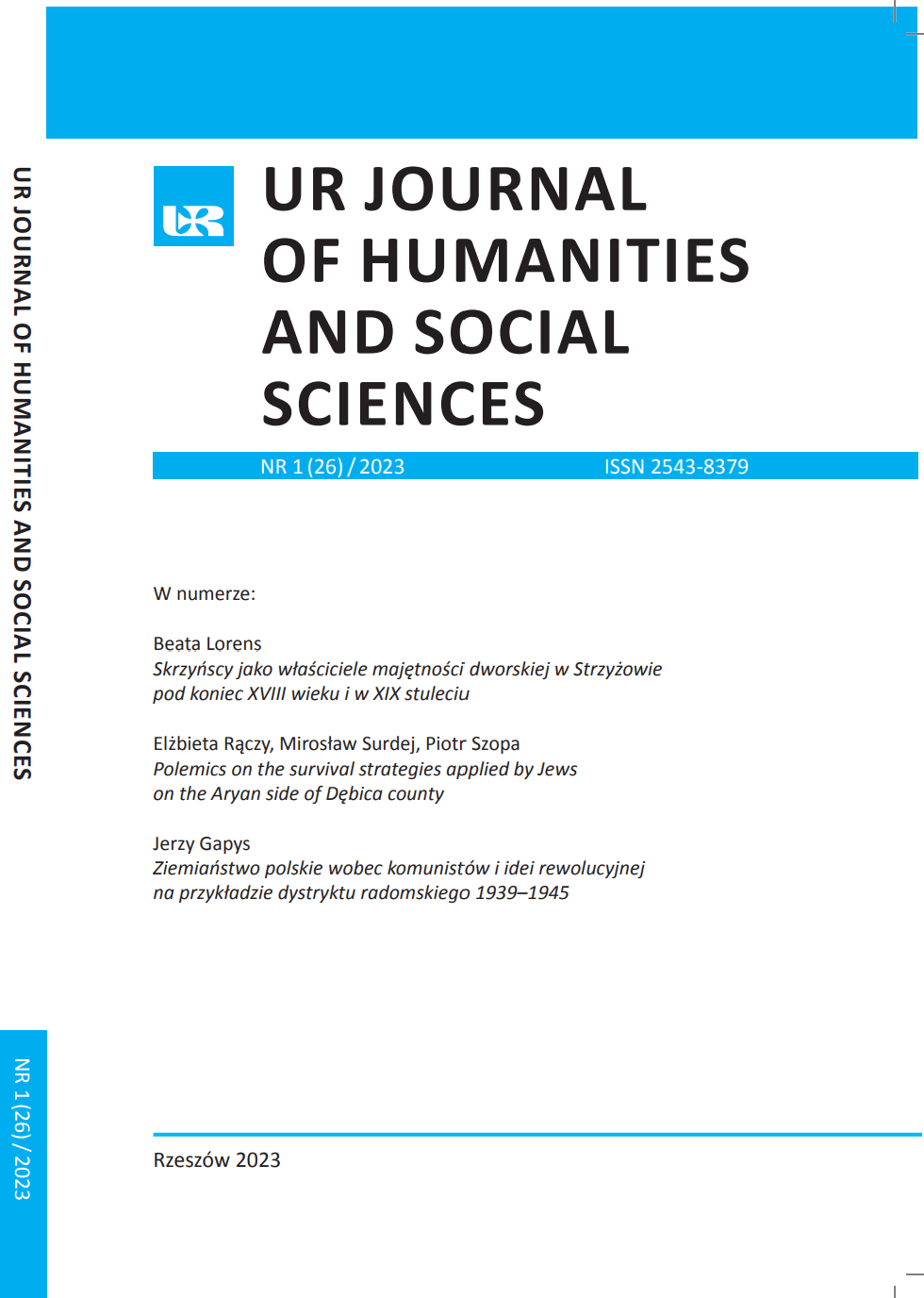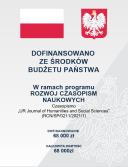Polish gentry attitudes towards the communists and the revolutionary idea on the example of the Radom district in 1939–1945
DOI:
https://doi.org/10.15584/johass.2023.1.5Keywords:
World War II, Radom District, gentry, communist camp, communist revolutionAbstract
In the final phase of the German occupation, the communist camp, in the General Government amongst other areas, embarked on the preparatory phase of the Marxist revolution. In the countryside it consisted mainly of fighting the Polish landowners, as a guarantor of the continuation of the old order. The fight against the landowners was carried out on an ideological level (anti-landowner propaganda in the countryside and on the estates), on an economic level (strikes, requisitions, contributions, destruction of crops and machinery), on an organizational level (attempts to set up parceling committees on the manors), and acts of terror (kidnappings, murders) were carried out to physically liquidate the landowners. Landowners, because of their conservative inclinations and social position, reacted negatively to the communist idea and the activities of the revolutionary camp. The political actions of the communists were considered illegal, and their operations against the landed gentry as mere banditry. While protecting their lives and property, at the same time they took steps to strengthen the anti-revolutionary camp by supporting the armed conspiracy and organizing their own political coteries. However, in view of the unfavorable geopolitical situation, these efforts ultimately proved ineffective.
Downloads
Downloads
Published
How to Cite
Issue
Section
License
Copyright (c) 2023 Wydawnictwo Uniwersytetu Rzeszowskiego

This work is licensed under a Creative Commons Attribution-NonCommercial 4.0 International License.



